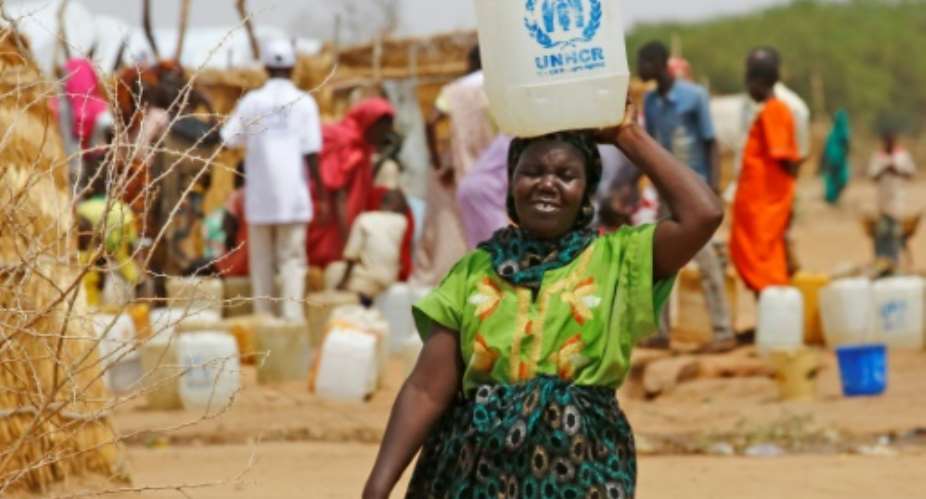Khartoum (AFP) - Sudan insisted on Saturday that it respected media and religious freedoms after the United States said it was "very concerned" about Khartoum's human rights record.
Washington raised its concerns just two weeks before President Donald Trump is due to decide whether to permanently lift a 20-year-old US trade embargo on Khartoum.
"Sudan enjoys freedom of press with more than 30 newspapers supporting government as well as opposition views published daily," the foreign ministry said in a statement.
"Sudan also enjoys religious freedom, which is exemplified with several churches existing adjacent to mosques."
The ministry said the fact that Sudan hosted hundreds of thousands of refugees showed there was "no religious discrimination" in the country.
The UN refugee agency UNHCR says about 400,000 South Sudanese refugees, most of them Christian, have taken refuge in Sudan since a brutal civil war erupted in their country in late 2013.
"The government of Sudan is further ready for positive engagement over human rights issues which are internal and sovereign," the ministry said.
Some think tanks have urged the Trump administration to delay permanently lifting the trade embargo, accusing Khartoum of widespread human rights violations.
Sudan regularly ranks near the bottom of international press freedom rankings.
The National Intelligence and Security Service often confiscates the entire print runs of newspapers without giving any reason.
The US embassy raised its concerns in a statement on Thursday.
"The United States remains very concerned about Sudan's human rights record, including the continued closing of political space, and restrictions on religious freedom, freedom of expression, including press freedom," it said.
Washington imposed sanctions on Khartoum in 1997 for its alleged support for Islamist militant groups. Now slain Al-Qaeda leader Osama bin Laden was based in Khartoum from 1992 to 1996.
Although Washington believes Khartoum's terror ties have ebbed, it has kept sanctions in place because of the scorched-earth tactics it has used against ethnic minority rebels in Darfur.
The United Nations says at least 300,000 people have been killed and 2.5 million displaced in the western region since the conflict erupted in 2003.





 Supreme court declares payment of wages to spouses of President, Vice President ...
Supreme court declares payment of wages to spouses of President, Vice President ...
 Publish full KPMG report on SML-GRA contract – Bright Simons to Akufo-Addo
Publish full KPMG report on SML-GRA contract – Bright Simons to Akufo-Addo
 Kumasi International Airport to begin full operations by end of June
Kumasi International Airport to begin full operations by end of June
 Election 2024: Our ‘real challenge’ is getting ‘un-bothered’ youth to vote – Abu...
Election 2024: Our ‘real challenge’ is getting ‘un-bothered’ youth to vote – Abu...
 [Full text] Findings and recommendations by KPMG on SML-GRA contract
[Full text] Findings and recommendations by KPMG on SML-GRA contract
 Renegotiate SML contract – Akufo-Addo to GRA, Finance Ministry
Renegotiate SML contract – Akufo-Addo to GRA, Finance Ministry
 J.B Danquah-Adu murder trial: Sexy Dondon to Subpoena Ken Agyapong, Ursula Owusu
J.B Danquah-Adu murder trial: Sexy Dondon to Subpoena Ken Agyapong, Ursula Owusu
 Galamsey: Five Burkinabes jailed 20 years each for mining
Galamsey: Five Burkinabes jailed 20 years each for mining
 'It's no crime' – Abu Sakara defends Alan's exit from NPP
'It's no crime' – Abu Sakara defends Alan's exit from NPP
 'We know all your houses, pay your bills now or we’ll disconnect you; we're all ...
'We know all your houses, pay your bills now or we’ll disconnect you; we're all ...
